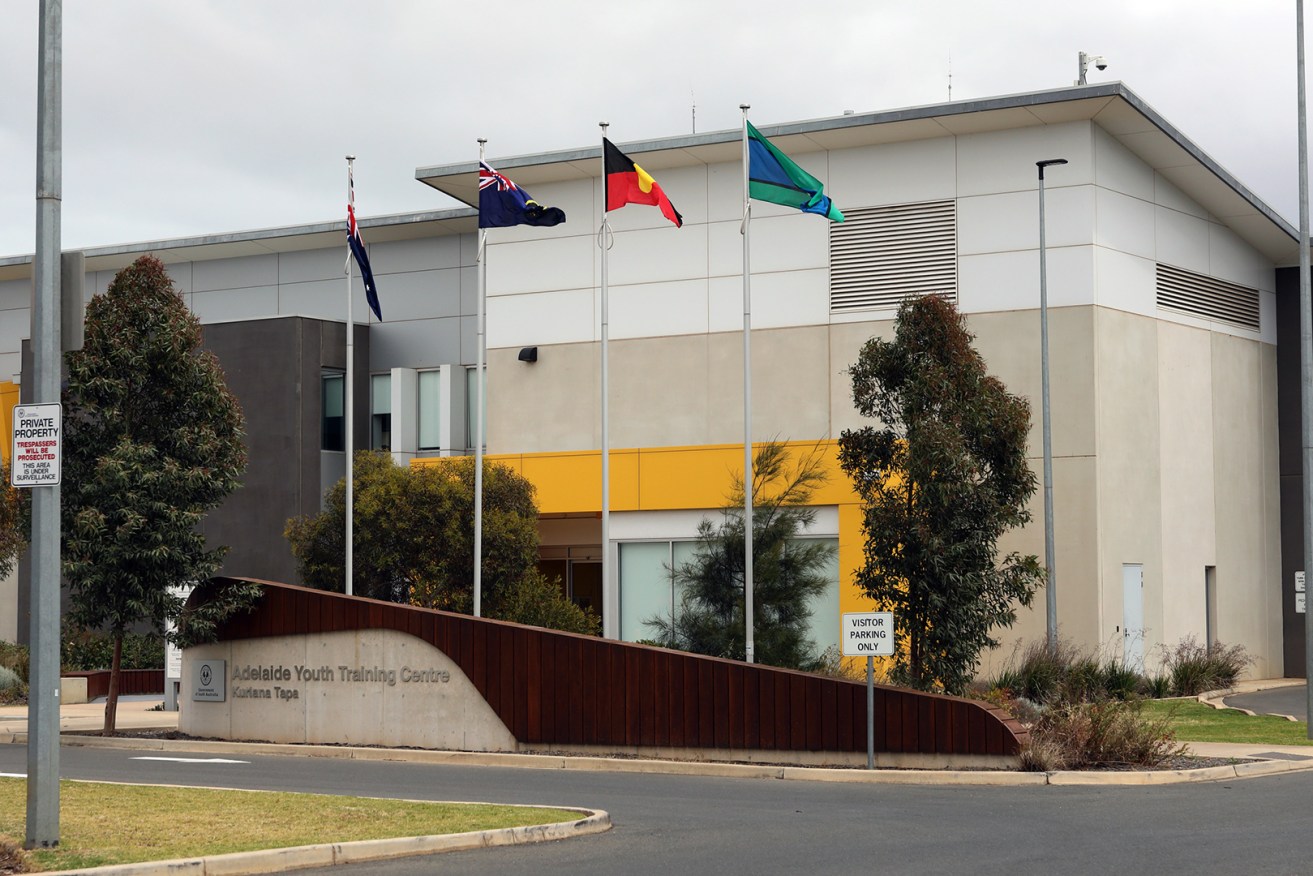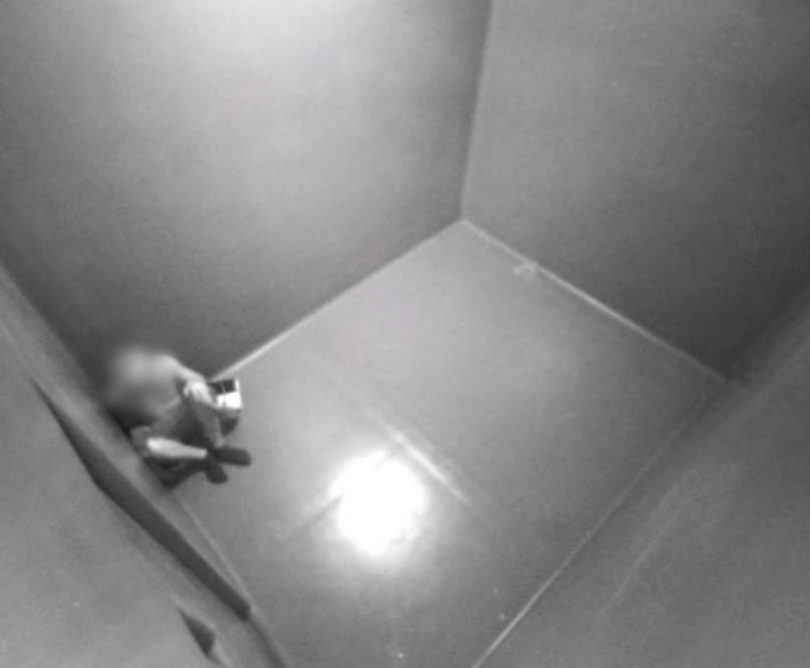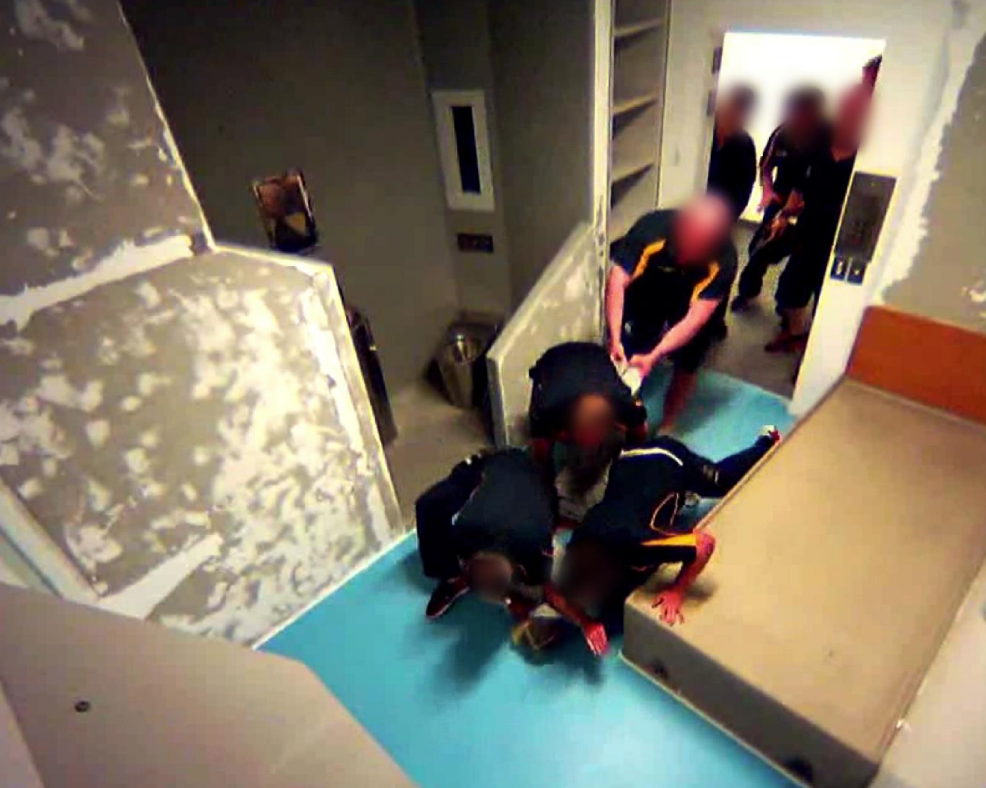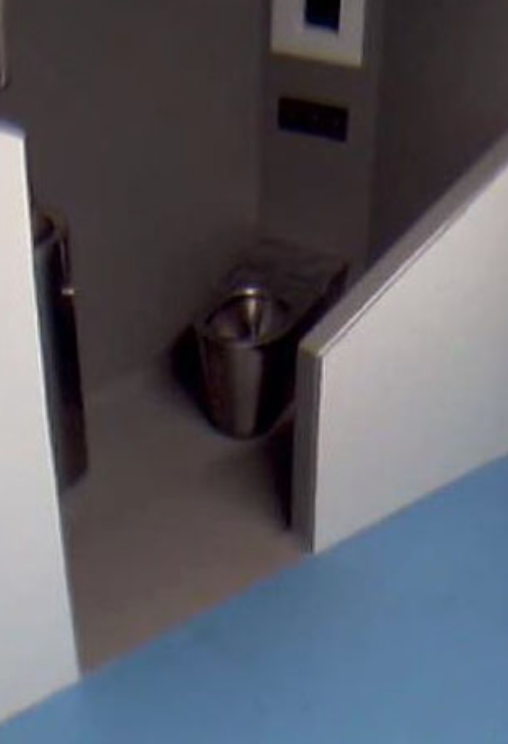Youth training centre broke law with treatment of child: watchdog
UPDATED: A child aged under 12 was illegally isolated in a cell while detained at the Adelaide Youth Training Centre, the state’s watchdog has revealed, amid concerns staff restrain children face down on the floor and film them using the toilet.

A child aged under 12 years was unlawfully detained in a "safe room" at the Adelaide Youth Training Centre in the past year. Photo: Tony Lewis / InDaily
In a report tabled in Parliament yesterday, training centre visitor Penny Wright said in the past year a resident of the Adelaide Youth Training Centre aged under 12 was detained in a “safe room” – an isolation cell, often padded, used to regulate children’s emotions and behaviour.
The South Australian Youth Justice Administration Act 2016 prohibits the use of safe rooms for children aged under 12 years.
InDaily asked Wright’s office to specify the age of the child who was unlawfully detained, and for how long they were in isolation, but is yet to receive a response.
In her report, Wright said safe rooms could be “necessary and useful” in some circumstances when used for a limited time.
But she said in other cases they could be “harmful” and “reinforce trauma-related behaviours”.
“In the case of younger children there is evidence that isolation and the use of a safe room is developmentally inappropriate and they are best assisted to regulate their emotions in the presence of a caring adult,” Wright said.
According to the Act, youth training centre residents can be placed in a safe room if they are about to harm themselves or others, if they are about to cause significant property damage, or to maintain order and safety at the centre.
In a statement to InDaily, Human Services Minister Michelle Lensink said she had been advised that the safe room was deemed the “safest option” for the child aged under 12 due its padded floor and the “extreme behaviour” of the child at the time.
“I am advised the door remained open and staff continued to engage with the resident and the young person was not left alone or locked in the room,” she said.
“Safe rooms are only used within the Adelaide Youth Training Centre (AYTC) when necessary and in limited situations to help bring a situation under control quickly and to ensure the safety of the resident, other young people and staff.
The rooms are padded and designed to ensure young people cannot do themselves harm.”

A young person sitting in a safe room at the Adelaide Youth Training Centre. Photo released by the SA Ombudsman
The revelation comes amid concerns children detained at the Adelaide Youth Training Centre were held face down on the floor “on multiple occasions, when not used as last resort and for extended periods” over the past year.
According to Wright, the form of restraint – known as “prone restraint” – can asphyxiate children and harm their physical safety.
Wright’s report noted a SA Chief Psychiatrist policy that advises “at no time should a child be held in a prone position”.
Even for adults, the Chief Psychiatrist has warned that prone restraint “should be avoided and must cease within three minutes”.
Lensink said Adelaide Youth Training Centre staff were trained to use restraint methods “that are not excessive, do not injure a resident and bring a situation under control safely and quickly”.
“The prone position is when staff place their weight on the limbs of the young person and not on their torso at any stage,” she said.
“Staff are trained to de-escalate aggressive behaviour, and force is used as a last resort.”
It follows the release last month of an Ombudsman’s report criticising the use of a controversial restraint device known as spit hoods at the Adelaide Youth Training Centre.
The report found staff at the training centre used spit hoods 57 times between October 2016 and June 2019.
CCTV footage released by the Department of Human Services last month showed children as young as 15 years being physically restrained by multiple training centre staff, who affixed hoods to the residents’ heads to prevent them spitting.
Human Services Minister Michelle Lensink responded by announcing the State Government would ban the use of spit hoods at the centre by June next year.

CCTV footage of a resident at the Adelaide Youth Training Centre being detained in a prone restaint by staff. The camera angle shows the residents’ bathroom facilities. Photo published by the SA Ombudsman
Wright also rehashed “serious and ongoing” privacy concerns raised by residents – some aged as young as 10 – in relation to the use of CCTV cameras at the Adelaide Youth Training Centre.
InDaily reported last month bedrooms and adjoining bathrooms in one of the units at the Youth Training Centre’s Jonal Drive campus were fitted with cameras that were connected to “multiple screens” visible to staff, visiting personnel and other residents.
In her report tabled yesterday, Wright said all rooms across both the Jonal Drive and Goldsborough Road campuses were now fitted with CCTV cameras.
Photos from CCTV cameras released by the Ombudsman last month show residents being detained in their bedrooms, with their adjoining shower and toilet in view.
“Children as young as ten years and up to 19 years have raised concerns with the TCV (training centre visitor) about their right to privacy particularly when using the toilet,” Wright said in her report.
“The TCV has advocated strongly for 12 months for the resolution of this serious breach of resident privacy but it has not yet been resolved.
“Resolution of this issue is urgently required to ensure the safety and wellbeing of the children and young women and men at the AYTC (Adelaide Youth Training Centre) as well as that of staff.”

CCTV view of a toilet area in one of the bedrooms at the Adelaide Youth Training Centre. Photo published by the SA Ombudsman
Statements from some of the residents – published on the TCV website last month and reported by InDaily – detail these concerns.
“Some staff turn the screen in the office around, some cover it, but I’m always on the screen,” one was quoted as saying.
“We expect to be on camera if we are fresh in, or play up, or having silly thoughts, not all the time,” another was quoted.
Lensink said the Department for Human Services was reviewing its usage of CCTV at the Adelaide Youth Training Centre.
“Action has been taken to provide privacy screens for showering and toileting, balanced with the safety of residents,” she said.
“At all times, the resident’s right to privacy must be balanced with the need to keep them safe.”
Wright also raised long-standing concerns that a “significant” number of residents at the Adelaide Youth Training Centre were being detained while on remand due to lack of alternative placement options.
“It is a major policy issue that these children or young people are subject to incarceration and deprived of their liberty yet may have no conviction recorded against them,” she said.
One of the case studies mentioned in Wright’s report tells the story of Rachel – a resident on remand at the AYTC who was transported to a Youth Court hearing by a private company contracted by the Department for Human Services.
Rachel alleged that the company “placed her in shackles and made her wear spit protection for her court appearance, despite the AYTC not endorsing the use of shackles in the centre”.
Rachel also said she was not provided with water upon request during her wait in the Youth Court cells.
In a separate report published last month, Wright described the detention of children on remand at the AYTC as “on the fact of it” a breach of core protections in the International Covenant on Civil and Political Rights, and the Convention on the Rights of the Child.
But Lensink said it was the Youth Court that decided whether to remand a young person to custody or ball.
“Staff at the AYTC work closely with young people on remand, to connect them with family and community to establish a suitable bail address,” she said.
“This information is then given to the young persons’ legal representative.”
The revelations made by Wright’s office come as the watchdog warns she will be forced to scale back the number of visits to the youth training centre next year due to limited Government funding.
“The future year will be challenging,” Wright said.
“There are many things we would like to do more of, or better, that are not possible within the resources available to me.
“In the face of these challenges, in the next year, we will need to reduce our visiting, we will not be able to ensure that the female residents have access to a female Advocate, we will have fewer visits with two Advocates and we will need to report less comprehensively.”
Lensink said Wright’s office received funding to employ three full-time staff, but only 2.5 full-time employees were currently working.
“At any one time, there are about 40 young people in the AYTC and numbers in the centre have continued to trend downwards,” she said.
Opposition human services spokesperson Nat Cook said she was disappointed to read that issues flagged by Wright’s office in last year’s annual report had not been acted upon.
“One of them, importantly, is that the legislation around the youth training visitor is not allowing her to provide advocacy for young people at all times – if a young person leaves the centre and goes to hospital for example, they don’t have anybody to advocate for them,” she said.
“It’s clear that the Government hasn’t acted on a whole range of recommendations and calls from 12 months ago.”
Want to comment?
Send us an email, making it clear which story you’re commenting on and including your full name (required for publication) and phone number (only for verification purposes). Please put “Reader views” in the subject.
We’ll publish the best comments in a regular “Reader Views” post. Your comments can be brief, or we can accept up to 350 words, or thereabouts.
InDaily has changed the way we receive comments. Go here for an explanation.




